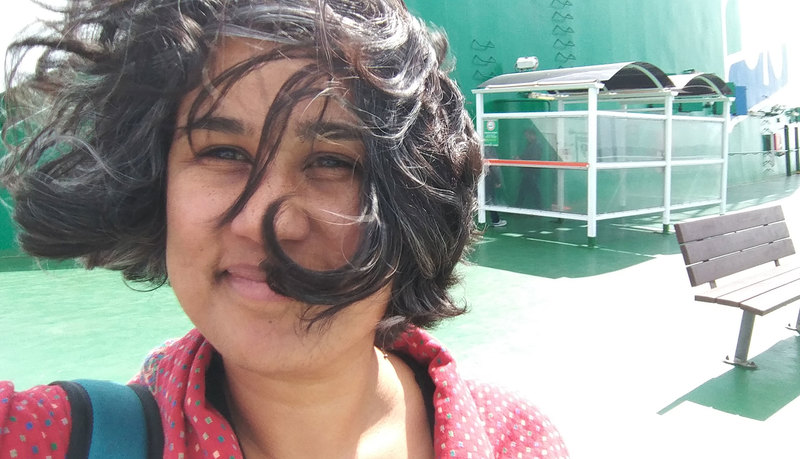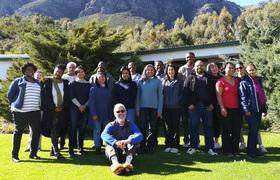Shari Daya on decolonising Geography
31 March 2020 | Story Shari Daya. Photo Provided. Read time 4 min.
South Africa’s higher education system needs to decolonise the discipline of geography. The establishment of the discipline, its histories, disclose its origins as “indubitably imperialist”. The discipline was part of a colonial project of cartography, exploration and knowledge.
Shari Daya recently reflected on the state of the discipline in a piece in the South African Journal of Science On shaky ground: A response to Long, D, Dalu, MS, Lembani, RL and Gunter, A (2019) Shifting sands: The decoloniality of geography and its curriculum in South Africa. She was interested to engage with existing debates on decolonisation to clarify some of the troublesome concepts and to suggest ways to move the process forward.
Daya drew on postcolonial theory for her inspiration. Postcolonial theory has already invigorated research by drawing attention to what Derek Gregory of the University of British Columbia names as ‘the colonial present’. Postcolonial theory encourages nuanced understandings of historical and experiential difference.
Her article responded to one written by Dianne Long and colleagues (Long D, Dalu MS, Lembani RL, Gunter A) Shifting sands: The decoloniality of geography and its curriculum in South Africa. South African Journal of Science 2019; 115 (9/10): 1-3). Daya objected to the “seemingly clear boundaries between ‘within’ and ‘outside’, or ‘local’ and ‘Western’”. The conceptions promote essentialist and reductive notions of ‘race’ and geographical location. The effect of these clear boundaries is to limit who may ‘legitimately’ speak in academic spaces and thereby to close down debate.
Daya agreed that there is a need to critically dismantle colonial iconography, canons, curricula, pedagogies and intellectual paradigms. She also agreed that there should be more African and south-south partnerships and greater recognition of diverse forms of knowledge, and urged the development of new criteria for excellence in theory, methodology and pedagogy.
Steps forward
But how might this best be achieved? Daya has three suggestions.
We need to build an evidence base of curricula and pedagogical practices in the discipline, in and beyond South Africa. Jasper Knight’s 2018 paper in the South African Geographical Journal begins this work with a focus on South African Geography syllabi, and interviews with staff in one Geography department. This could be a springboard for a survey of greater breadth and depth, looking not just at course content but also at pedagogical strategies and teaching and learning experiences in our discipline.
Geography departments should critically interrogate and re-imagine current pedagogies as a collective project. Conventional models of teaching in raked lecture halls, and our default modes of assessment (tests, essays, exams) shape our hierarchical and often silencing institutional culture, the revision of which forms a core part of decolonisation.
This is not to deny that such teaching practices are necessarily exclusionary nor to overlook that many departments already undertake fieldtrips, workshops, and other forms of teaching that do not rely on a ‘container’ model of education. Sharing these techniques and experiences as part of a collective conversation, in order to build more equitable institutions, is essential to pedagogical learning within geography.
Lastly, we need to critically historicise and contextualise the discipline from the perspective of Africa and the global south. The biographies of power that shape both physical and human geographies, as they are researched and taught in our institutions, remain under-examined.
As Aamir Mufti argued: We need to interrogate the ‘culture of theory’ with which we work – not only in our research but also in our teaching.
 This work is licensed under a Creative Commons Attribution-NoDerivatives 4.0 International License.
This work is licensed under a Creative Commons Attribution-NoDerivatives 4.0 International License.
Please view the republishing articles page for more information.
Related










